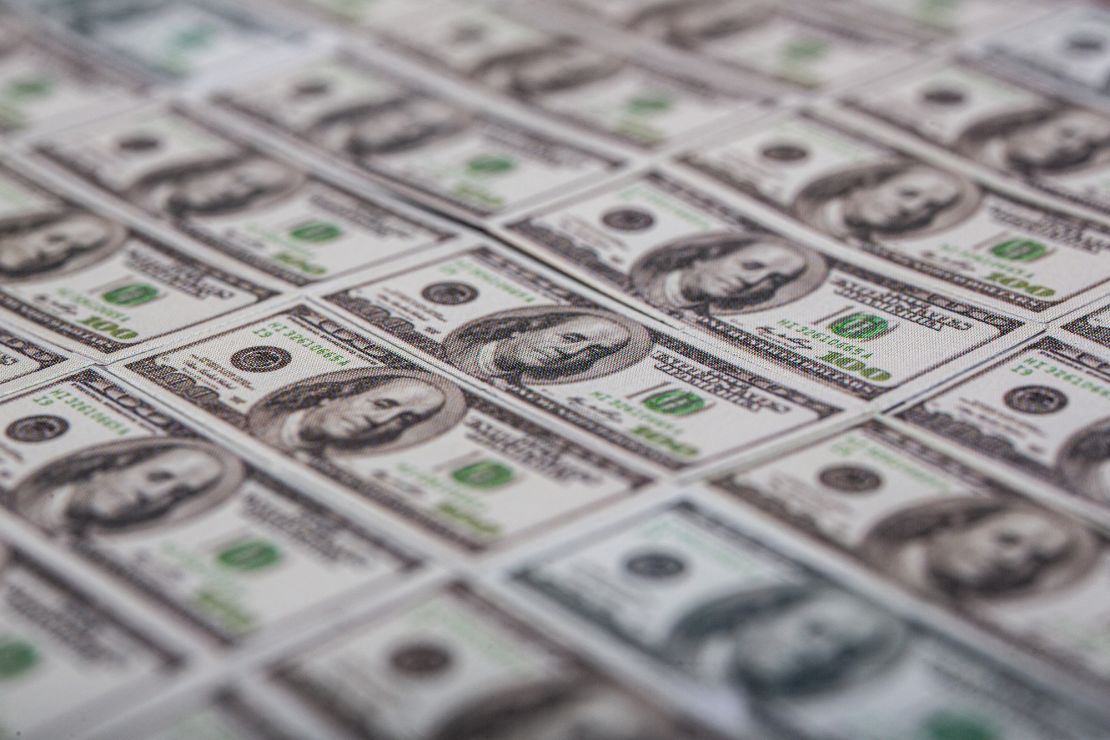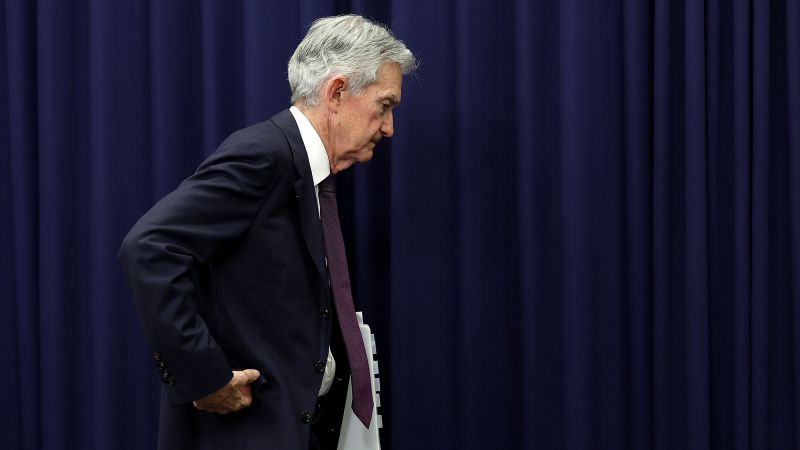New York/Washington
CNN
—
If President Donald Trump were to fire Federal Reserve Chair Jerome Powell, it could have unintended and severe consequences that reverberate throughout the US economy and global markets.
For now, the likelihood of the president actually moving to oust the head of the central bank remains low, due to the legal hurdles required.
That’s partly why investors have seemingly grown numb to Trump’s ongoing admonishment, even after the president brandished a draft of a termination letter for the Fed chair in front of lawmakers on Tuesday night.
Another reason is that Trump’s own economic advisers have warned of the market chaos that could ensue if he makes good on his threats.
But if he does, it would backfire spectacularly, experts say, rattling Wall Street, potentially imploding the bond market and sabotaging the Fed’s ability to manage the economy.
Markets on Wednesday briefly dropped after reports that Trump was likely to fire Powell soon. The US dollar index, which measures the dollar’s strength against six major foreign currencies, swiftly dropped almost 1%. The dollar index pared its losses after Trump told reporters at the White House that he has no plans to fire Powell.
Long-term bond yields moved higher, the dollar was lower and stocks fell midday on a “sell-America trade” before Trump told reporters he had no plans to fire Powell, tempering the market’s concerns, Krishna Guha, vice chairman at Evercore ISI, said in a note.
“Financial markets sent a warning shot Wednesday as to what would happen if President Trump actually tried to fire Fed Chair Powell,” said Guha.
Jason Furman, a Harvard University economist who chaired the Council of Economic Advisers during the second Obama administration, wrote in a New York Times opinion piece Thursday that: “Federal Reserve independence is the closest thing to a free lunch that macroeconomists have identified. Firing Powell would unleash a massive amount of uncertainty, litigation and market turmoil.”
Mayhem for bonds and borrowing costs
Trump has repeatedly criticized Powell for not lowering interest rates fast enough. But a move to oust the Fed chair could itself lead to higher rates — and higher borrowing costs for Americans.
Markets prefer an independent central bank that can focus on price stability and the labor market without political interference. A Fed that loses its independence and is perceived to lower interest rates prematurely to meet political demands could cause investors’ inflation expectations to surge and cause bond holders to demand higher yields.
Despite Trump wanting lower yields, the market could push long-term yields higher, raising borrowing costs across the economy, including for the government. A rise in yields could also signal investors are selling or refusing to buy bonds in order to voice displeasure about the assault on the Fed and the perceived added risk to US markets.
The yield on the 30-year Treasury on Wednesday briefly jumped to 5.05% — the highest level in over a month — as investors digested whether Trump was serious about firing Powell. It was a clear signal that there could be a revolt in the bond market if the president tries to compromise the Fed.
“That hammers home the point that any gain for the administration in influencing the policy rate risks being offset by higher long-term yields, as investors price in higher inflation expectations or demand a higher-term premium to hold longer-dated debt,” Stephen Brown, deputy chief North America economist at Capital Economics, said in a note.
Republican Sen. John Kennedy of Louisiana told CNN Wednesday that if Powell during his term as Fed chair were to bend to Trump’s demands and “unilaterally cut interest rates” as much as 3%, the bond market would “go into a fit.”
“You would see interest rates rise dramatically and it would have a huge impact on us borrowing money to fund the government,” Kennedy said.
The US dollar’s value and status as the world’s reserve currency could take a severe hit if Trump tried to oust Powell, according to Francesco Pesole, an FX strategist at ING.
A move to fire Powell would be “a highly toxic mix for the dollar,” Pesole said. “Powell’s removal or resignation is likely to trigger a new round of severe downward volatility in the dollar, and the damage would be there to stay.”
Investors consider the United States the premier place to invest largely because of its stable institutions, checks on government overreach and strong rule of law. A move by Trump to compromise the Fed’s independence could yield a short-term win for the president but destabilize the foundations of what makes America exceptional.
“An independent Fed is a key foundation of the dollar’s reserve currency appeal,” Pesole said.

The dollar has broadly weakened this year against other currencies amid concerns about investors’ appetite for American assets. A flight from the dollar could exacerbate concerns in the bond market, as foreign investors would get less of a return on holding US debt.
While an erosion of the Fed’s independence would lead to a swift exodus from the dollar and bonds, the stock market is a less certain picture. Sen. Kennedy told CNN that if Trump were to actually fire Powell, markets could crash.
“If you fire the chairman of the Federal Reserve, you will see the stock market crash, and you will see the bond market crash,” Kennedy said.
But Peter Ricchiuti, a senior professor of finance at Tulane University, told CNN he thinks there would actually be a “short-term increase in stock prices” because the assumption is that the new Fed chair would lower interest rates, which can be a boon for stocks.
However, if inflation were to then pick up, “investors will realize that an independent Fed is vitally important to both the markets and the world economy,” Ricchiuti said. Rampant inflation would eat into corporate earnings, be a headwind for stocks and punish American consumers just as prices were beginning to level out after a bout of decades-high inflation.
If Trump’s unrelenting attacks start to make Americans have doubts about the Fed chief’s role as a “wise steward” of the economy, that could make it difficult for the central bank to tame inflation or stimulate the economy where required.
“The biggest outcome of the very public criticism from President Trump of Chair Powell and ongoing threats of removing him is the possibility of erosion of the Fed’s credibility and their policies,” said Dominic Pappalardo, chief multi-asset strategist at Morningstar Wealth.
That’s important now more than ever with Trump’s tariffs expected to have wide-ranging effects on the US economy, affecting prices, employment and business investment.
“Trump’s continued criticism does nothing to aid the current conundrum of the Fed, trying to prevent runaway inflation while still supporting the economy,” he added. Last month, there were already signs of tariffs starting to push up prices of some goods.
It’s crucial for Americans to have faith that the Fed is setting rates with the economy’s best interests in mind because it directly influences the effectiveness of monetary policy, according to longstanding research.
“Undermining trust in the Fed for short-term political gain is a recipe for higher costs and lower living standards for all Americans over time,” wrote Ernie Tedeschi, director of economics at the Budget Lab at Yale University, in a July 16 column on Bloomberg.
“When policymakers are less effective at achieving the central bank’s mandates, everyday Americans pay more for groceries and rent as prices rise, while also getting less than otherwise would be expected on mortgages and other loans.”


